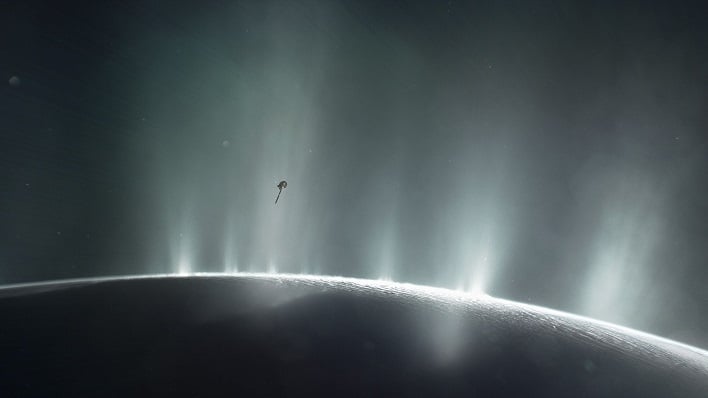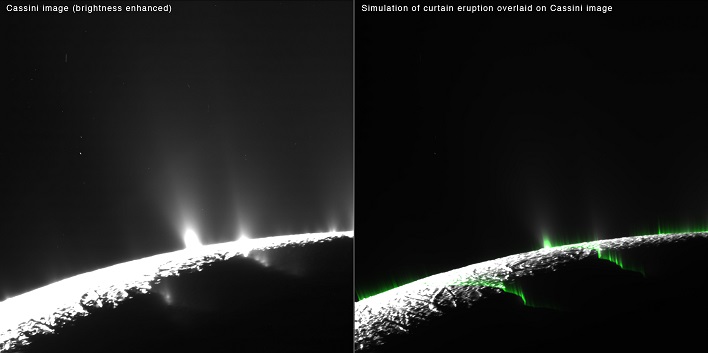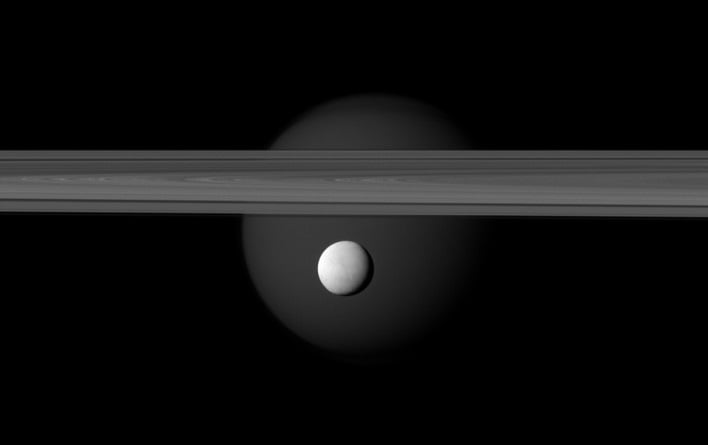Biologists Discover Soda Ocean On Saturn's Icy Moon Enceladus Has Ingredients For Life

Observations by the Cassini spacecraft have already allowed scientists to determine Enceladus has an ice-covered water ocen that spews a plume of many of the basic requirements of terrestrial life. One element that had not been detected had been the presence of phosphorous. However, a new model created by a group of researchers suggests that Saturn's moon should be rich in dissolved phosphorous.
"We weren't expecting this. We didn't look for it," explained Frank Postberg, a planetary scientist at the Free University of Berlin and lead author of the new study. Postberg described the find of phosphates as a "tantalizing moment."

Modeled eruptions on Enceladus as uniform curtains along fractures that stretch across Enceladus.
While earlier research had led scientists to believe phosphorus should be rare on other planets, Enceladus is the "exact opposite," according to Postberg. He added that rather than lacking the chemical, the moon's ice-ocean was "enriched compared to Earth's oceans by a factor of 1,000 or so."
The team studied 345 ice grains that Cassini studied as the spacecraft flew through Saturn's "E-ring". The team analyzed the grains with Cassini's Cosmic Dust Analyzer, which showed nine of the icy particles found had traces of the presence of phosphates.

"Using a model to predict the presence of phosphate is one thing, but actually finding the evidence for phosphate is incredibly exciting," exclaimed Dr. Christopher Glein, a leading expert in extraterrestrial oceanography and co-author of the new study. "This is a stunning result for astrobiology and a major step forward in the search for life beyond Earth."
Glein says the next logical step in the process is to go back to Enceladus to determine if its habitable ocean is in fact inhabited.

